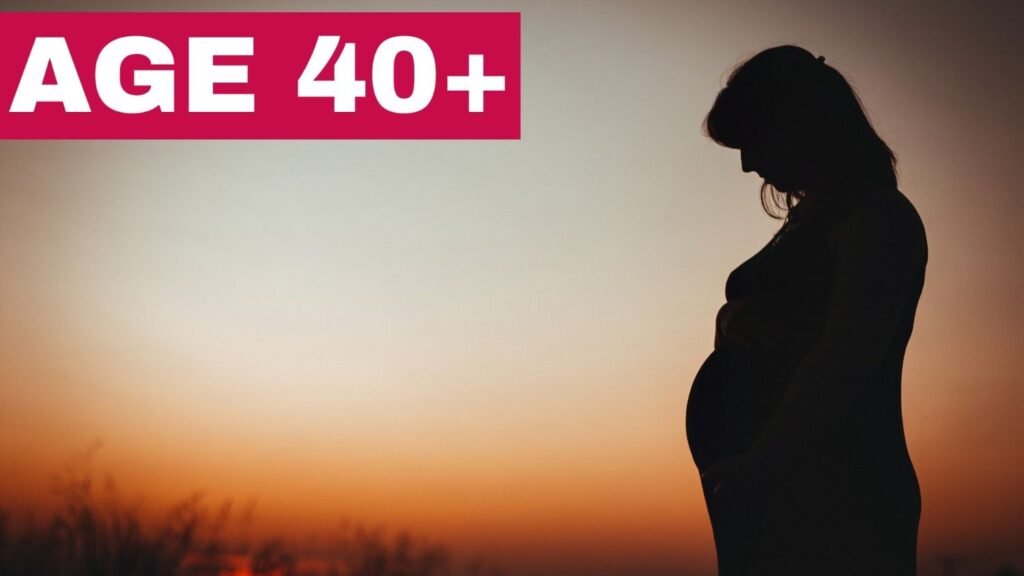For many women, the decision to start or expand a family comes later in life — and today, it’s more common than ever to try to conceive after the age of 40. Whether due to career, personal growth, relationships, or life circumstances, delaying parenthood is a choice many make. However, trying to conceive at 40 or beyond brings unique challenges, considerations, and opportunities.
In this blog, Dr. Swati Mishra, Senior Fertility Consultant at Nex IVF and Fertility Centre, shares valuable insights into the realities of conception after 40, what impacts fertility, the medical options available, and how you can optimize your chances of having a healthy pregnancy.

Is It Possible to Get Pregnant After 40?
Yes — but it’s important to understand that fertility naturally declines with age. Women are born with a fixed number of eggs, and both the quantity and quality of eggs diminish over time. By age 40, fertility rates drop significantly, and the chances of natural conception decline to around 5–10% per cycle.
However, with the right support, medical intervention, and lifestyle choices, many women in their 40s go on to have healthy pregnancies.
Why Does Fertility Decline After 40?
Reduced Egg Reserve (Low AMH): The number of eggs in the ovaries decreases, leading to lower AMH levels.
Poor Egg Quality: Eggs are more likely to have chromosomal abnormalities, increasing miscarriage and genetic disorder risks.
Hormonal Changes: Irregular FSH, LH, estrogen, and progesterone levels affect ovulation.
Health Conditions: Fibroids, endometriosis, thyroid disorders, or diabetes can affect fertility.
Partner’s Age: Male fertility also declines with age, reducing sperm count and motility.
What Tests Are Recommended After 40?
- AMH Test – Estimates ovarian reserve.
- Antral Follicle Count (AFC) – Measures egg quantity via ultrasound.
- FSH & LH Levels – Checks hormonal balance.
- Pelvic Ultrasound – Detects fibroids or structural issues.
- HSG (Hysterosalpingography) – Checks for blocked fallopian tubes.
- Semen Analysis – Assesses male partner’s sperm health.
What Are Your Options for Conceiving After 40?
Natural Conception: If egg reserve and health are good, pregnancy is possible.
Fertility Treatments:
- IUI – Mild cases but limited success over 40.
- IVF – Effective with advanced protocols at Nex IVF.
- Donor Egg IVF – High success using younger donor eggs.
- Fertility Preservation – Egg or embryo freezing at an earlier age.
Tips to Improve Conception Chances After 40
- See a fertility expert within 6 months of trying.
- Eat a balanced diet and exercise regularly.
- Take prenatal supplements (Folic acid, Vitamin D, CoQ10).
- Reduce stress through yoga, meditation.
- Avoid smoking, alcohol.
- Track ovulation using kits or apps.
Risks of Pregnancy After 40
- Higher risk of gestational diabetes, hypertension, miscarriage.
- Increased chromosomal abnormality chances (e.g., Down syndrome).
- More likelihood of C-section delivery.
That’s why close monitoring and expert care are essential.
Support and Guidance at Nex IVF and Fertility Centre
Led by Dr. Swati Mishra, our experienced team offers:
- Personalized fertility care for women over 40
- Advanced IVF and donor egg protocols
- PGT-A genetic screening to reduce miscarriage risk
- Emotional support throughout the journey
Success Stories After 40
At Nex IVF and Fertility Centre, we’ve helped many women in their 40s conceive successfully—through both natural means and assisted treatments like IVF and donor egg programs.
Conclusion
Trying to conceive after 40 can be challenging, but it’s entirely possible with expert care and guidance. With timely assessment, lifestyle changes, and fertility solutions like IVF or donor egg IVF, your parenthood journey can begin even after 40.
Consult Dr. Swati Mishra and the team at Nex IVF and Fertility Centre today.